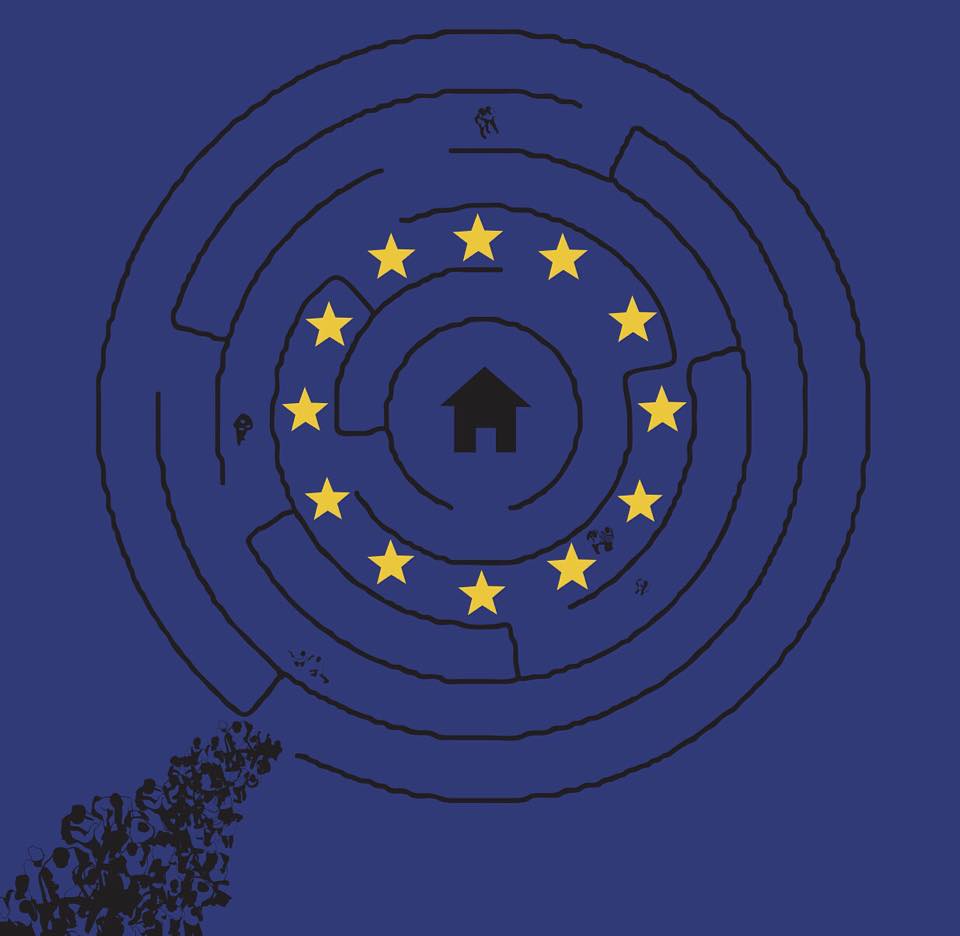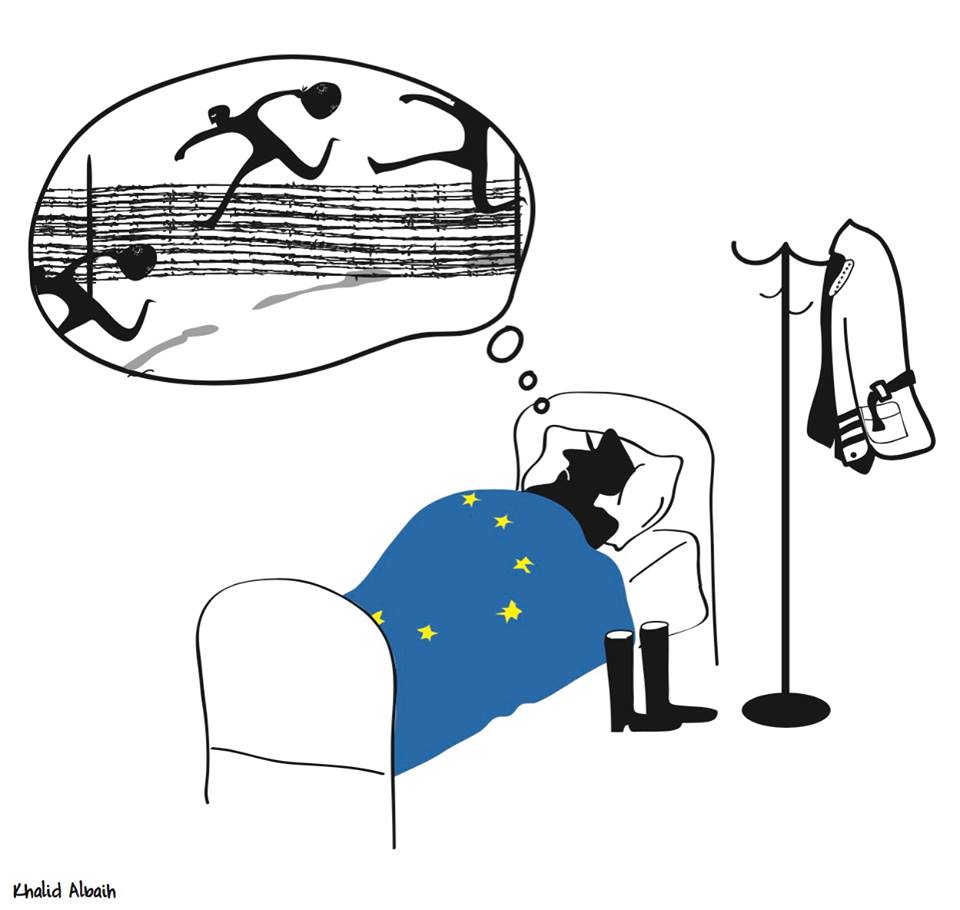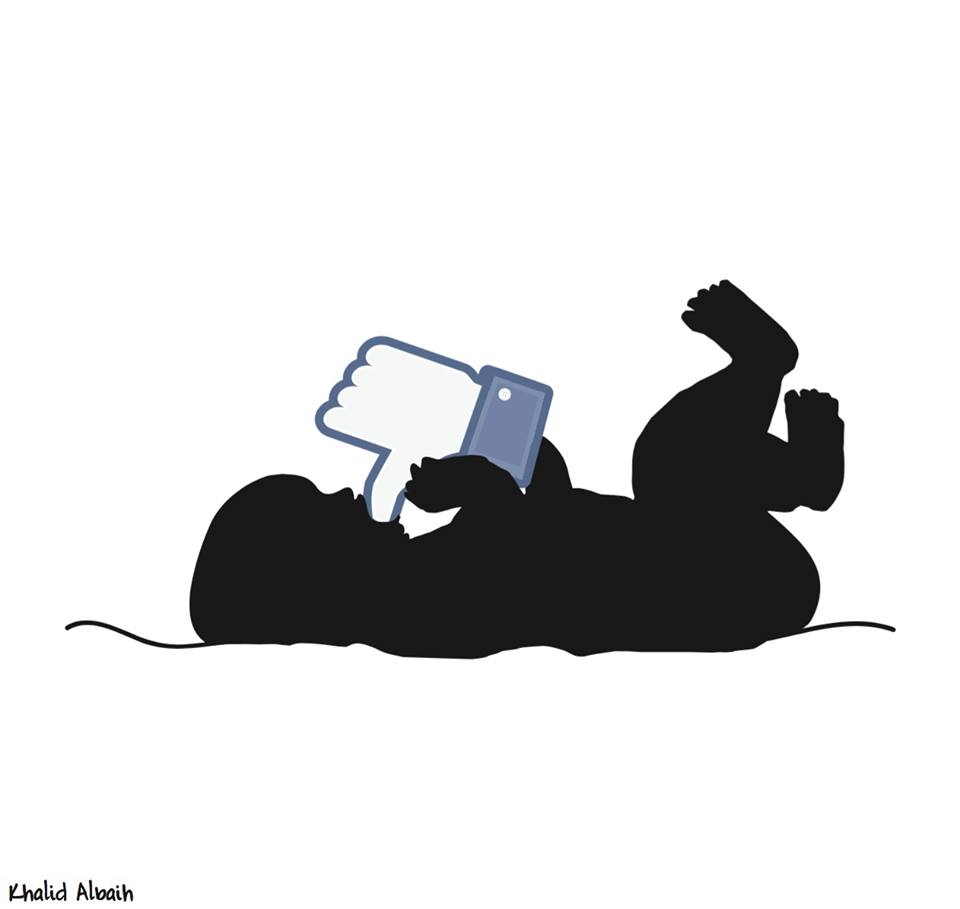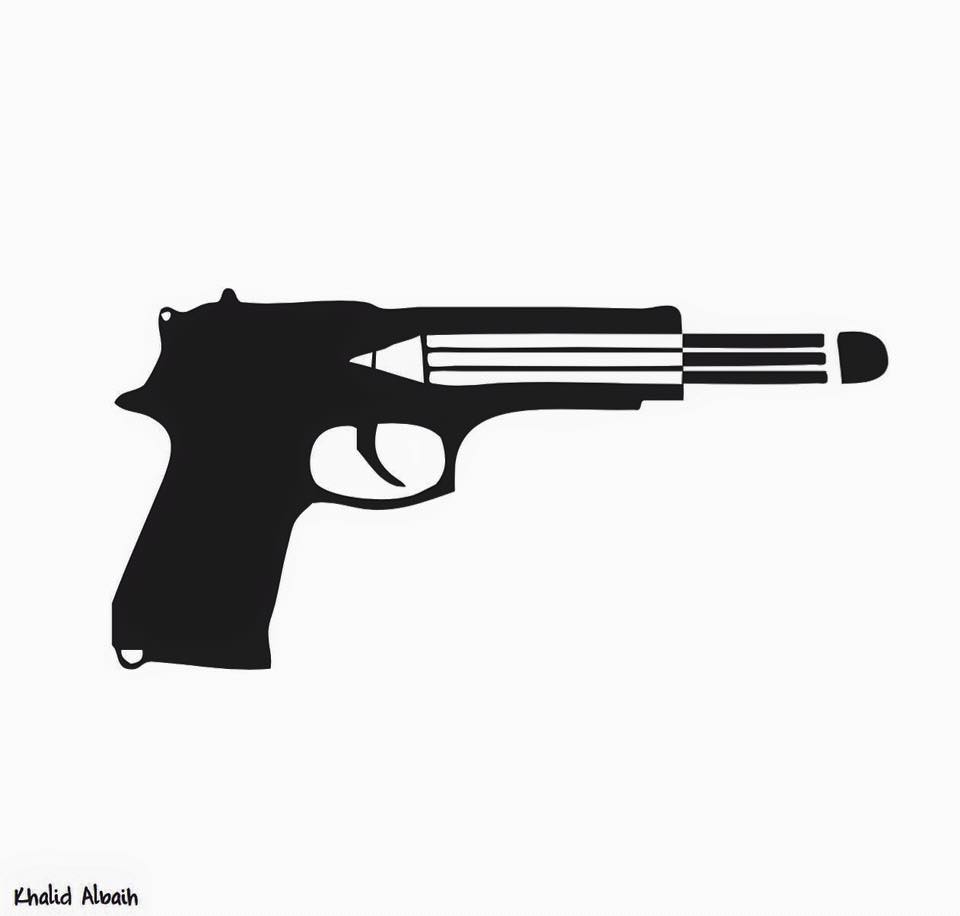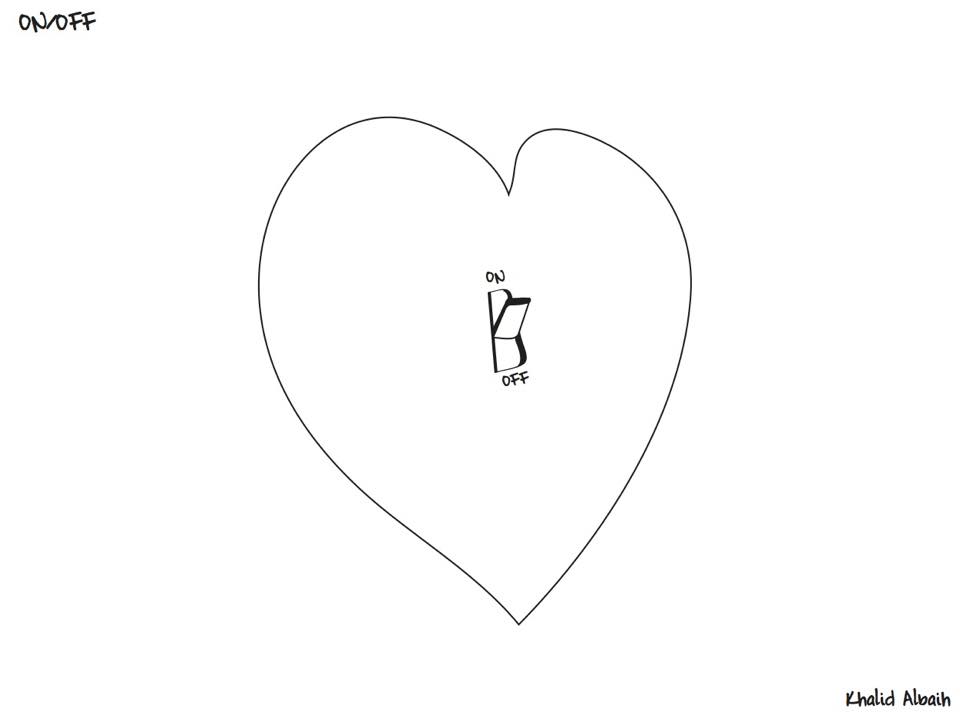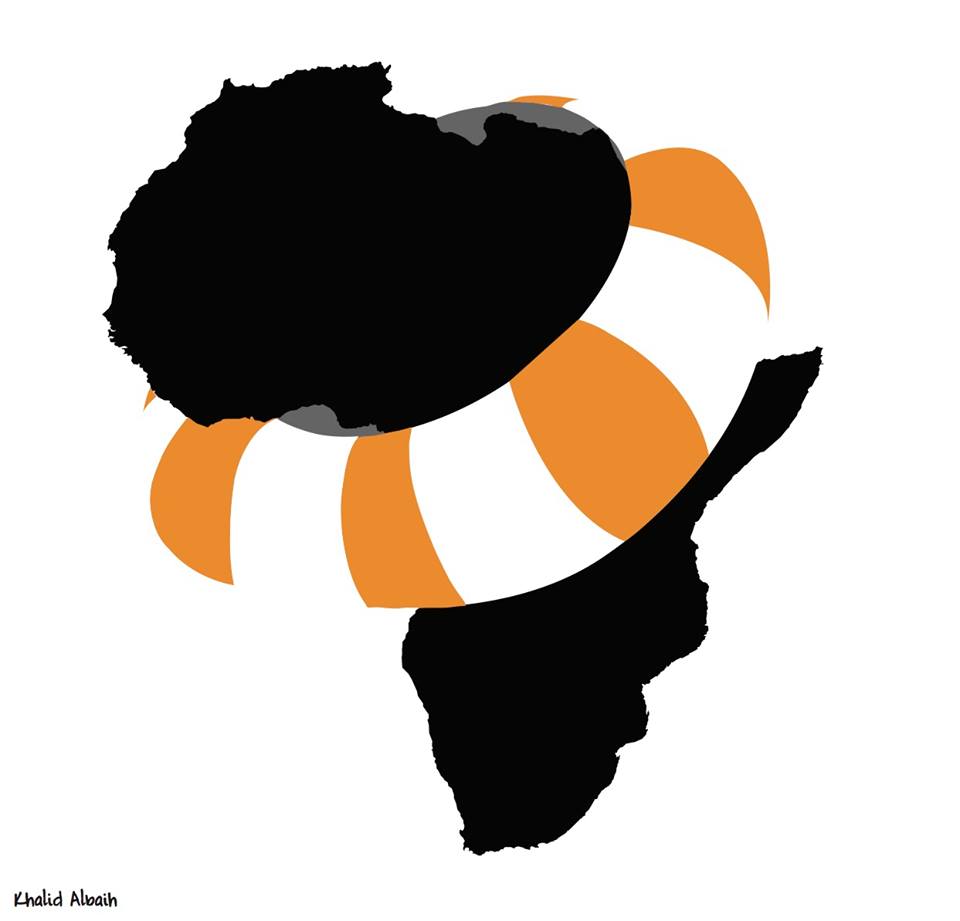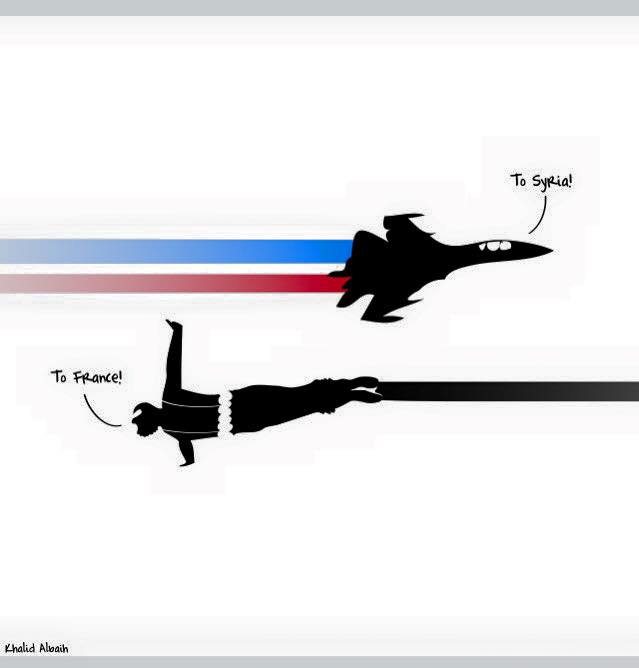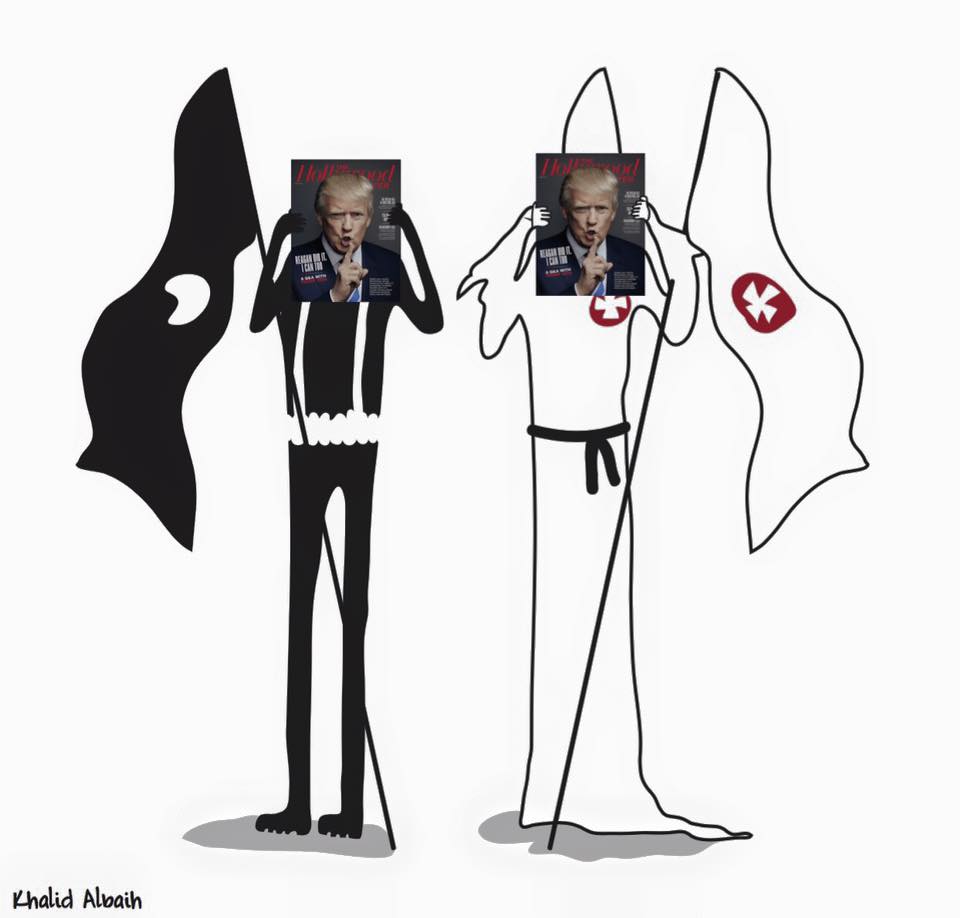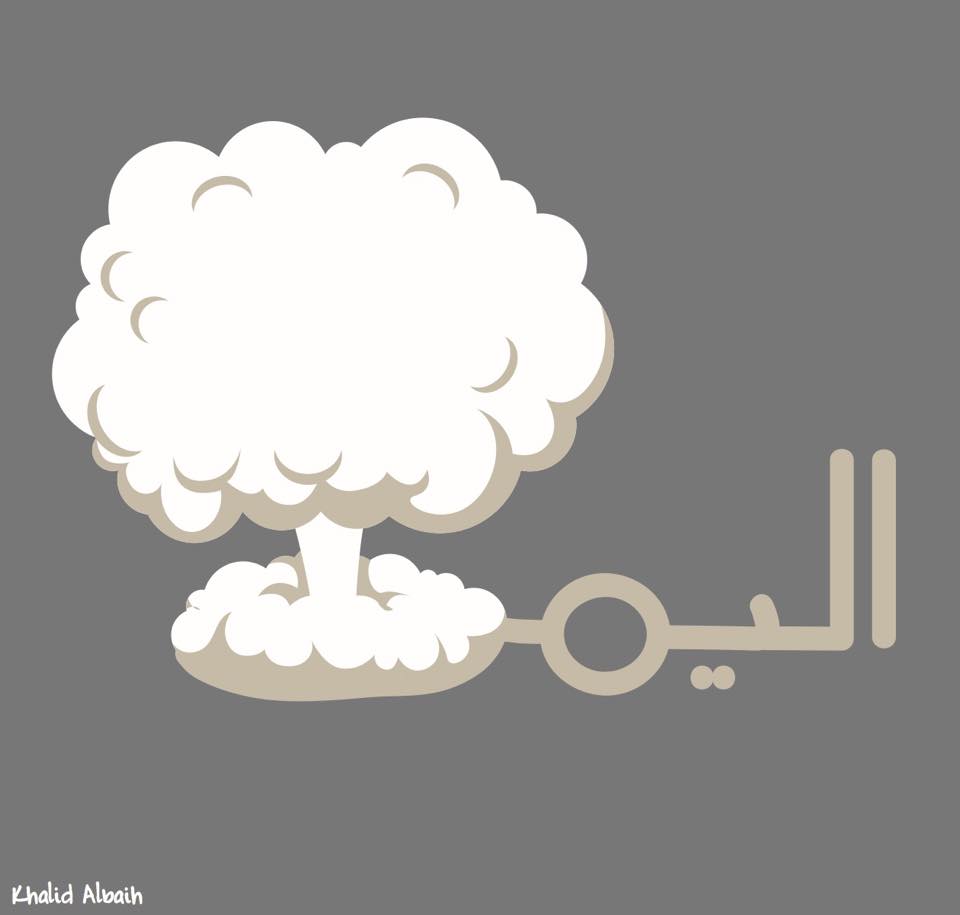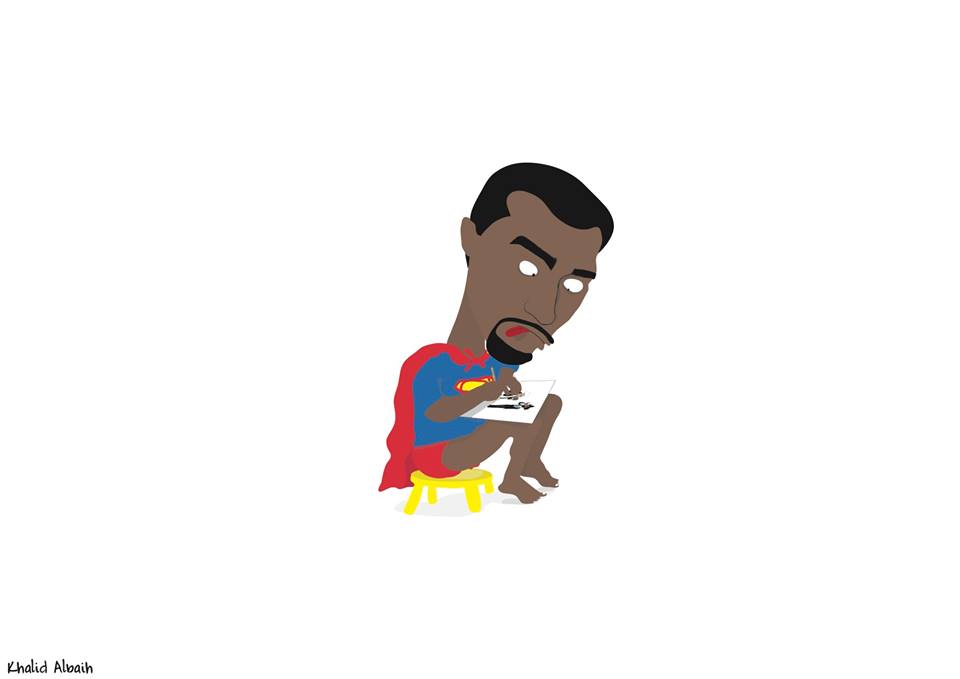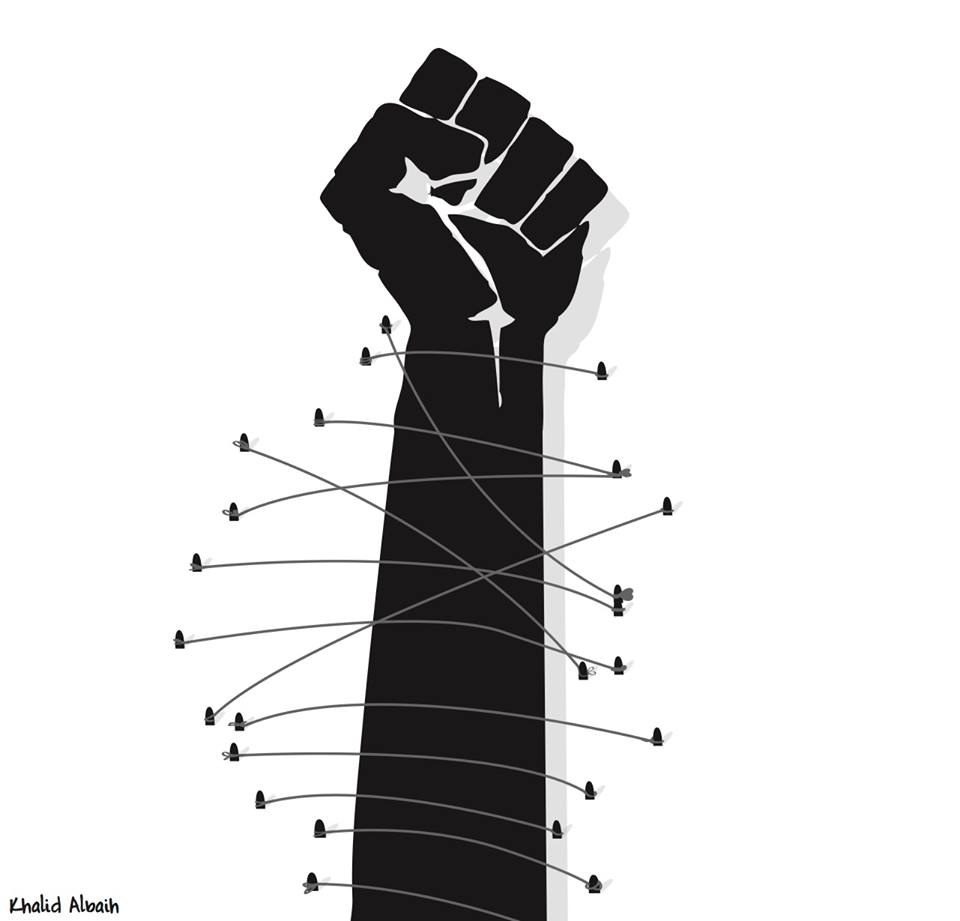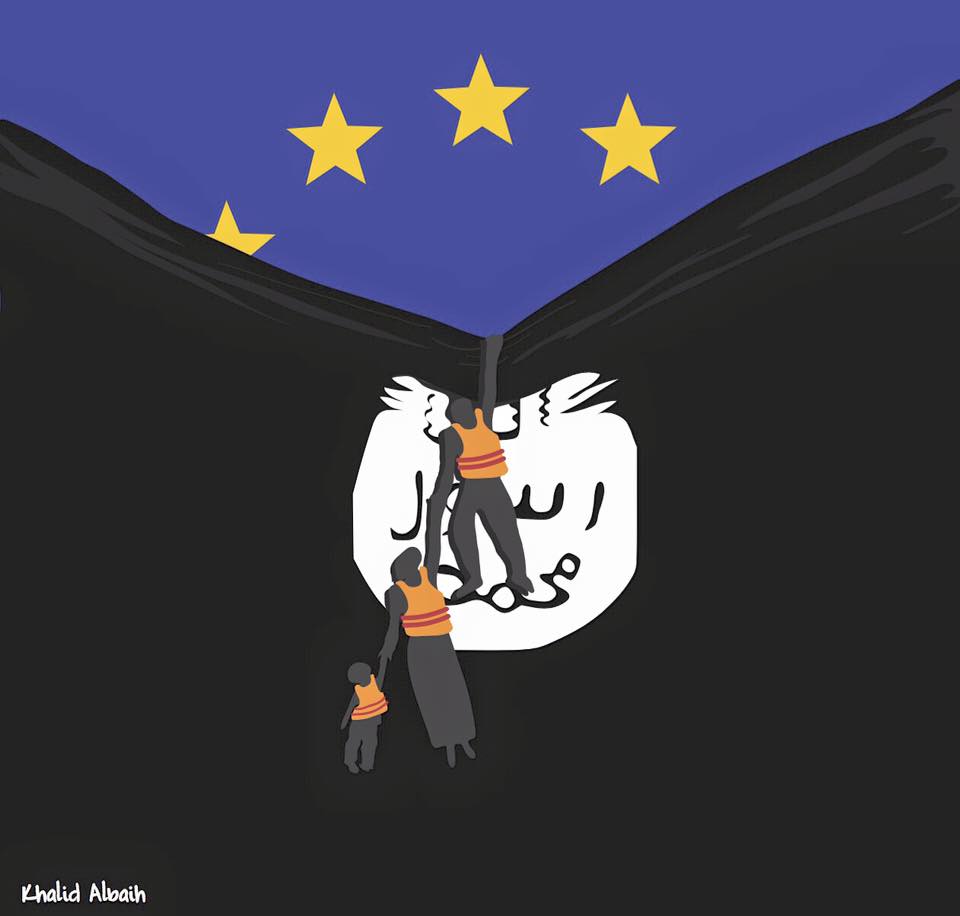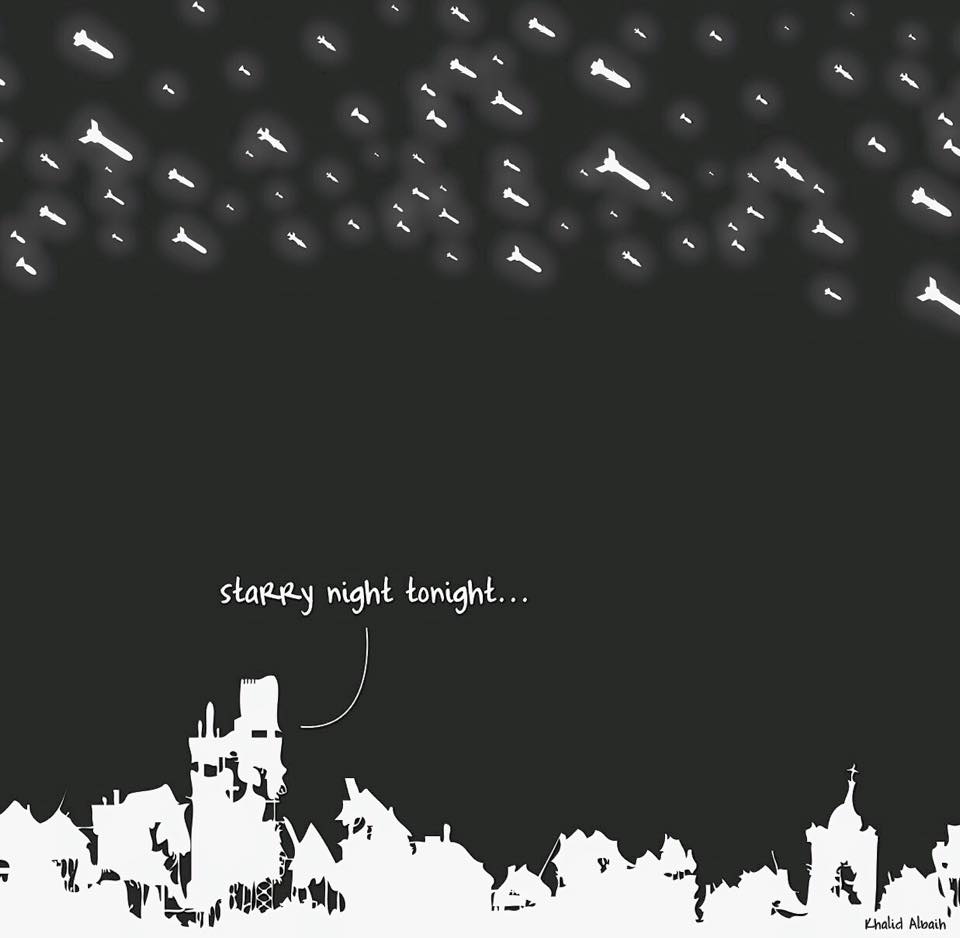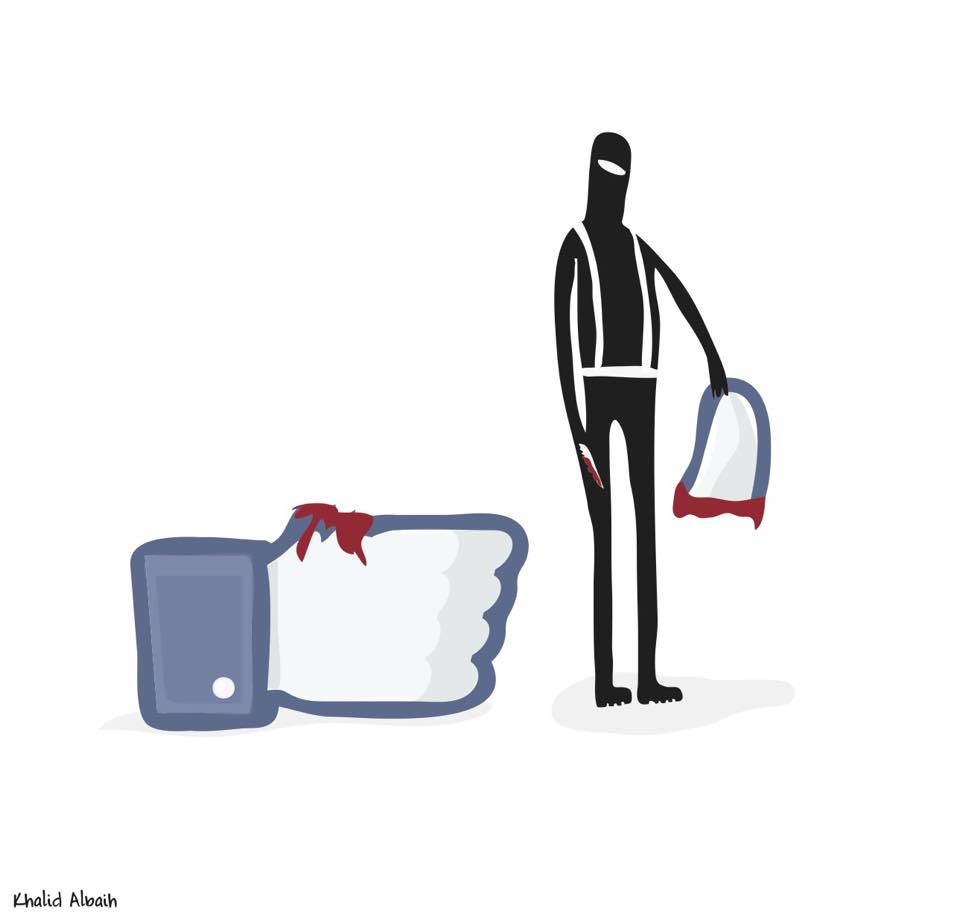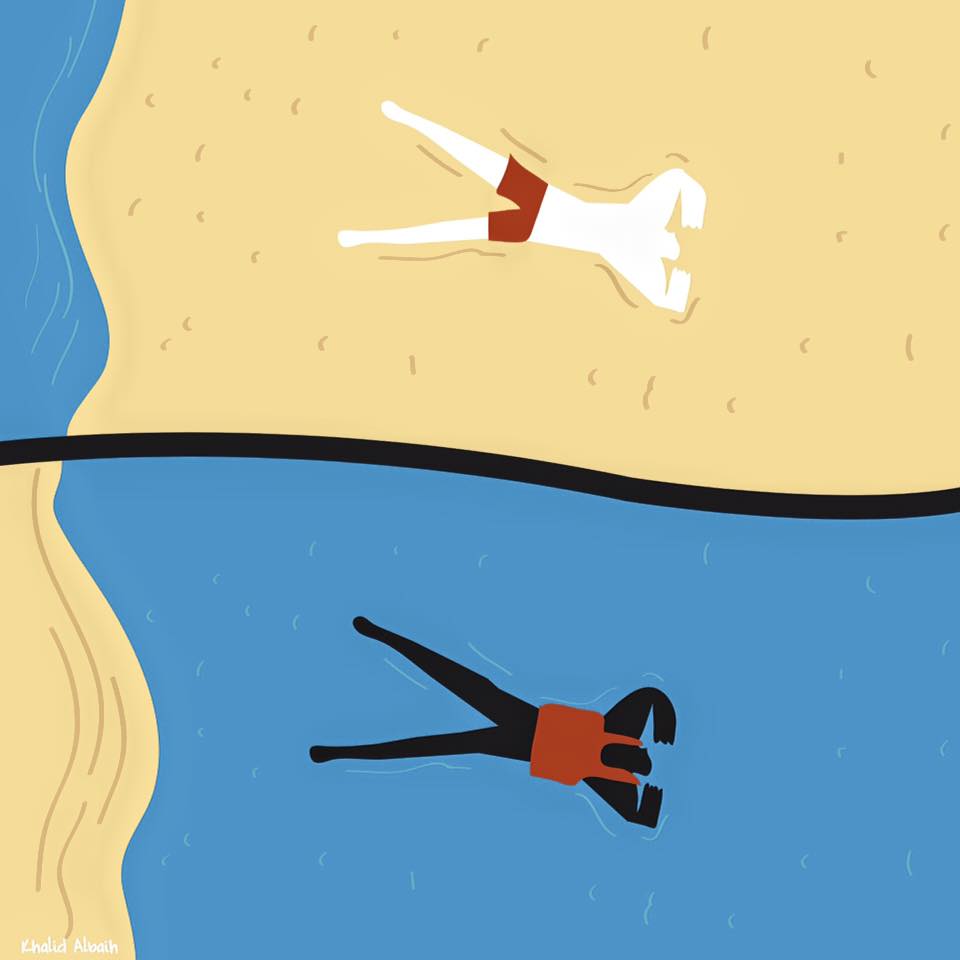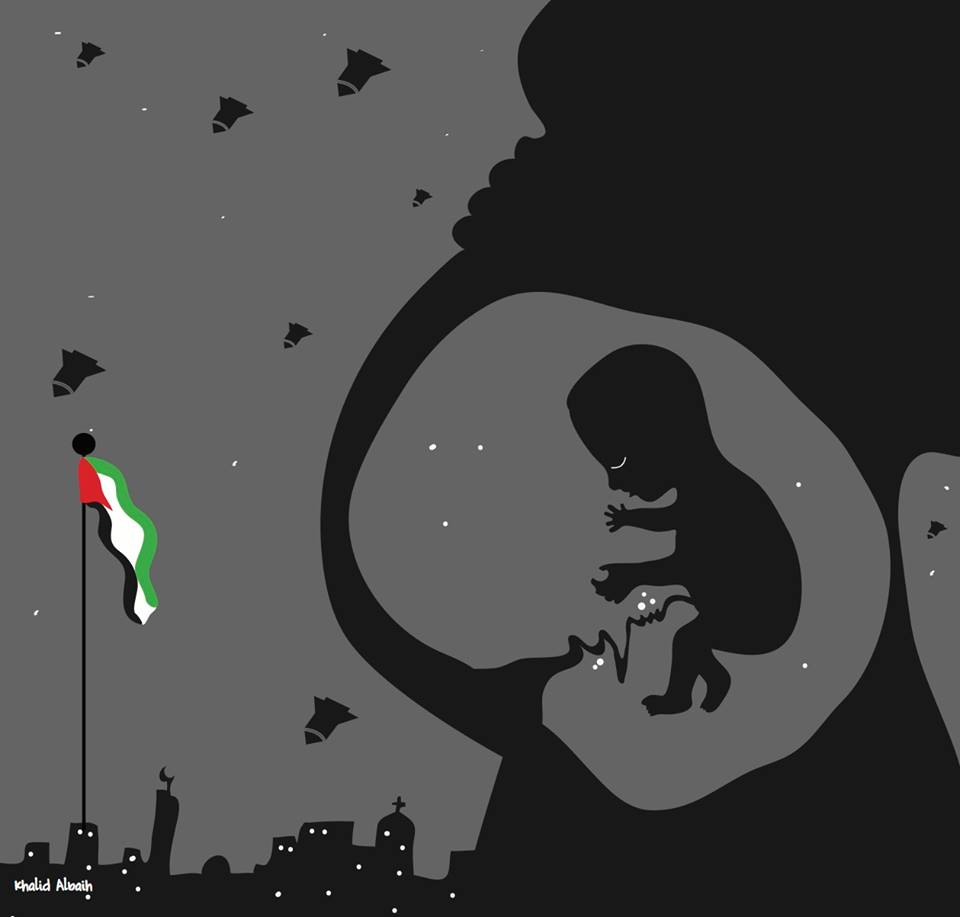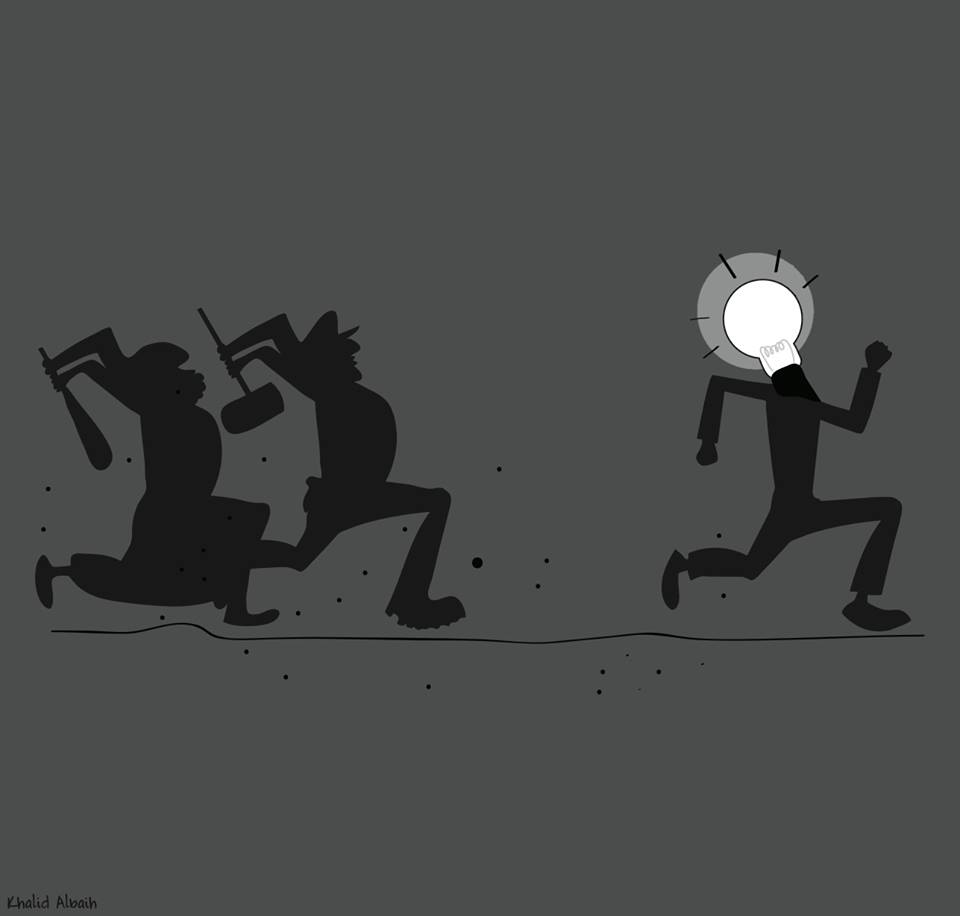“Sometimes it’s frustrating because I feel I’m not accomplishing enough.”
Khalid Albaih is the closest thing the world has to a real-life Clark Kent. By day, he works in Doha at the Qatar Museum Authority. By night, he’s a political cartoonist for uprisings and revolutions, his images whizzing around the world like Superman at breakneck speed.
Like his art, Khalid is the product of a tumultuous, connected world. He was born in Romania but moved to Qatar as a Sudanese political refugee- an upbringing, he jokes, that “no immigration officer ever believes”.
As a young teenager, Khalid would pore over cartoons from Sabah al-Kheir, an Egyptian magazine his exiled diplomat father often brought home.
“Even though (the cartoonists) were censored and under so much pressure, they were criticising the government, they were criticizing society,” he recalled. “For me, that brought everything together. That brought (together) what I loved– comic books, art, and politics.”
When the Arab Spring kicked off five years ago, Khalid was in his late-twenties. He started creating a cartoon a day, uploading it to social media for the world to access for free. He hasn’t stopped drawing a cartoon every single day since.
“It’s not easy,” he said. “I really don’t sleep. Sometimes it’s frustrating because I feel I’m not accomplishing enough.”
Khalid may not feel it, but the incredible outreach and impact of his artwork paints a different picture. His images, which often go viral within hours of being uploaded to his Facebook page, are used by revolutionary groups and graffiti artists across the Middle East, his native Sudan and around the world.
“The internet is my only escape. This is where I have the freedom to say what I want, but it (also) became a burden because people expect a lot of things from me.”
When major events unfold, Khalid has his pen in hand, ready to provide startling but crystal clear commentary on the political forces at work.
“A lot (of my art) surprises me by going viral,” added Khalid. “The Charlie Hebdo one was definitely one of those because it got shared a lot, mostly by non-Arabs and non-Muslims. I was very proud of that, and I was very proud of the world actually.”
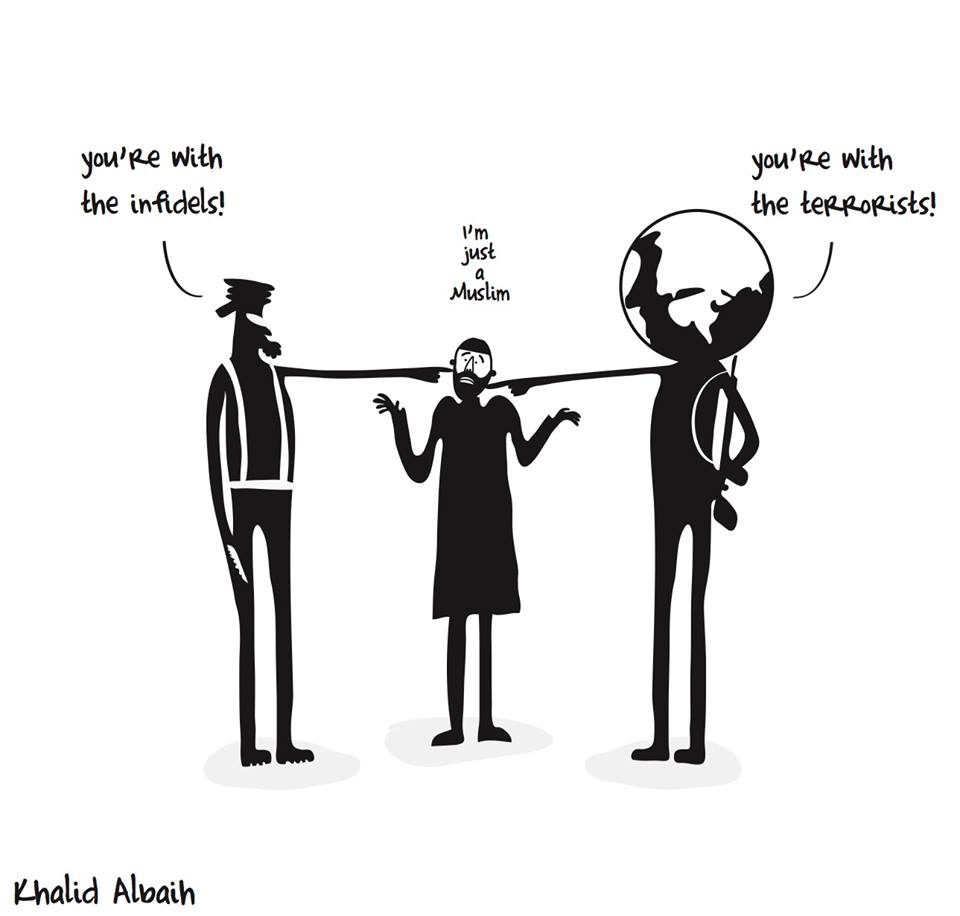
The cartoon Albaih drew on the day of the Charlie Hebdo attacks in January 2015 has been shared thousands of times.
“The security officers (in Egypt) were asking me if I’m going to draw. For me it was like, wow, they’re really scared of this?”
This week, Khalid launched a new exhibition titled @LAS (read: ‘Atlas’) at the VCUQatar Gallery in Doha. It brings together some of his most seminal cartoons, as well as new pieces that reflect Albaih’s relationship to the internet and his online audiences. Among them, is his first ever sculpture, depicting Atlas, the god that carries the world on his shoulders. Albaih’s version shows a man bending over under the weight of an ‘@’ sign.
https://www.facebook.com/albaih/videos/10156543673385593/
“Now the world is the internet,” said Khalid. “I think that (sculpture) represents me because the internet is my only escape. This is where I have the freedom to say what I want and engage with people in conversation. It was where everything started, but it (also) became a burden because a lot of people expect a lot of things from me.”
His artwork has gotten Khalid into trouble with various authorities around the world – it’s an occupational hazard, he said, that doesn’t bother him much anymore.
“When I went to Egypt and I got arrested at the airport, the experience was just hilarious,” he explained. “The security officers were asking me if I’m going to draw. For me it was like, wow, they’re really scared of this?”
Instead of getting hung up on vague censorship laws and the possibility of being punished for his politics, Khalid focuses all his attention on conveying a clear message with each cartoon. While his work is considered controversial in certain parts of the world, he says the intention is never to provoke shock.
“When I tell a message, I need to tell it very clearly, and without people diverting the conversation to something else,” he explained.
“The minute I shock them, I’m doing exactly the opposite of what I’m supposed to do. If people are shocked, they won’t listen to my message.”
It’s a feat he admits is particularly difficult, given that he lives in a “part of the world (where) people get upset about anything”. The frustration behind his work is the main inspiration for a animated video, called ‘Trapped’ currently on exhibition at the VCUQatar Gallery.
https://www.facebook.com/KhalidAlbaih/videos/1124766367539889/
“The video is about this man trapped in a box, but it’s really an elastic box,” said Khalid. “The borders stretch with you. Even if you’re trapped in a box, you just try to work and keep doing it. The frustration is tiring, and this video is about that. It’s not only me, but generations of people that are trying to break out of this box.”
“There’s always the question, what am I doing this for? I’m doing this for my kids. It’s definitely worth it, definitely worth it.”
Despite the pressure, dangers and frustrations, Khalid doesn’t plan to stop creating cartoons in the near-future. The pros, he says, far outweigh the risks.
“There’s always the question, what am I doing this for? I’m doing this for my kids. I want them to be safe at home and to be able to say whatever they want. It’s definitely worth it, definitely worth it.”
Khalid Albaih’s exhibition is on display at VCUQatar Gallery until March 21. Visit the website for more information. To read his account of being arrested in Egypt, click here.


